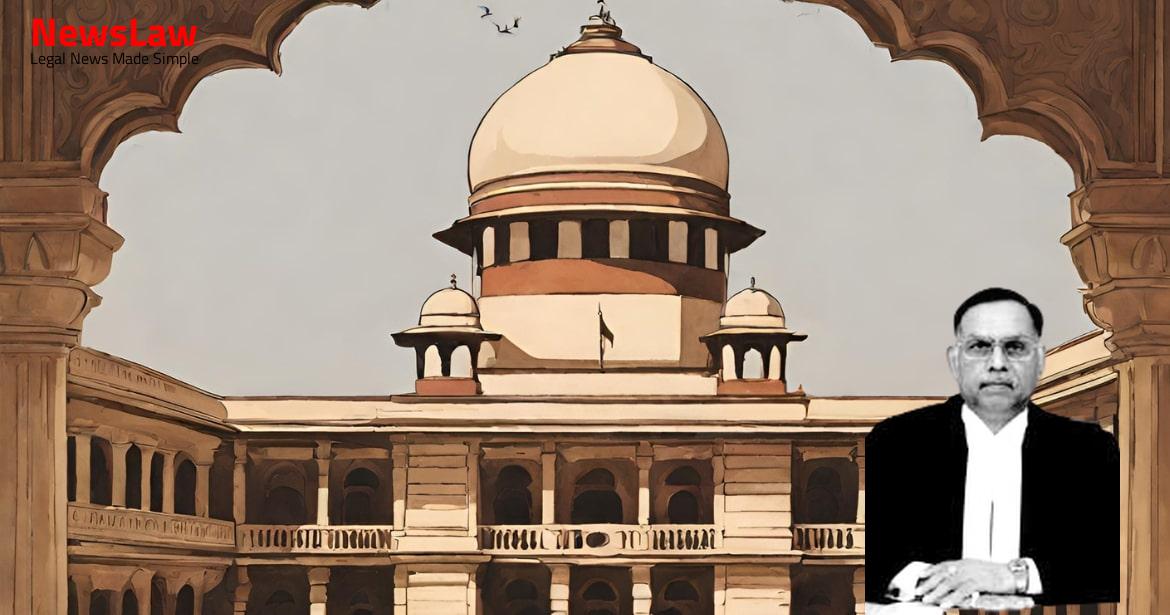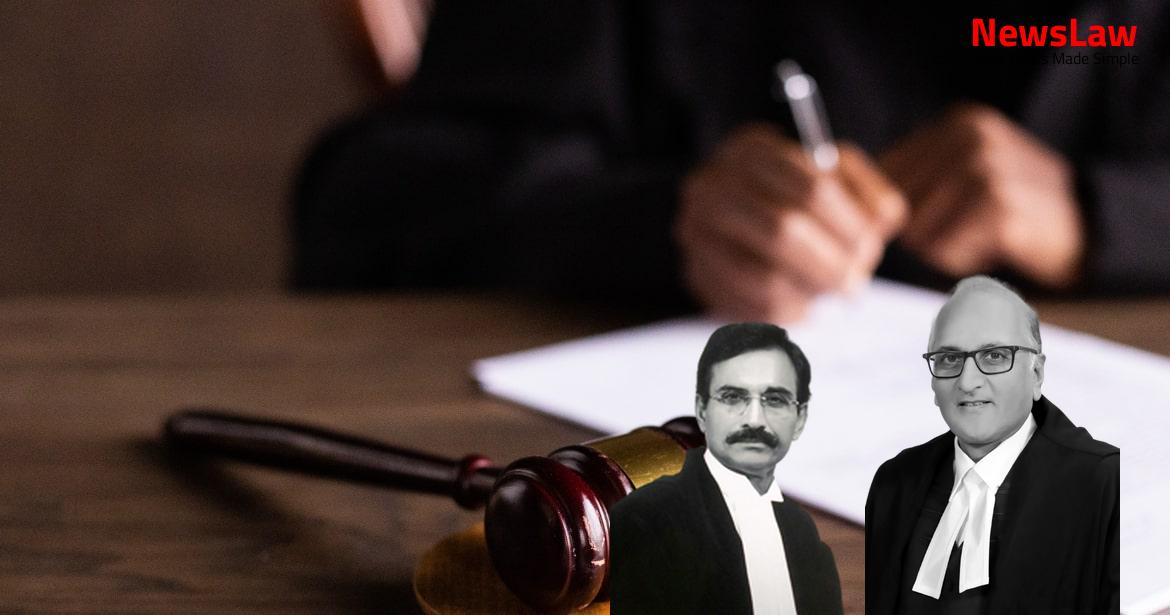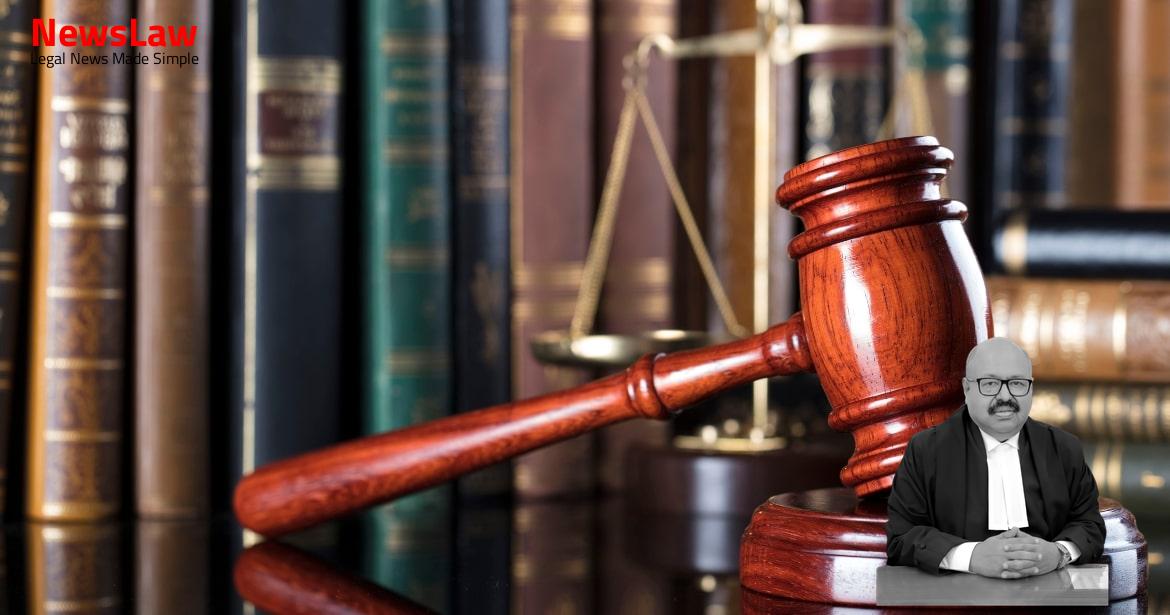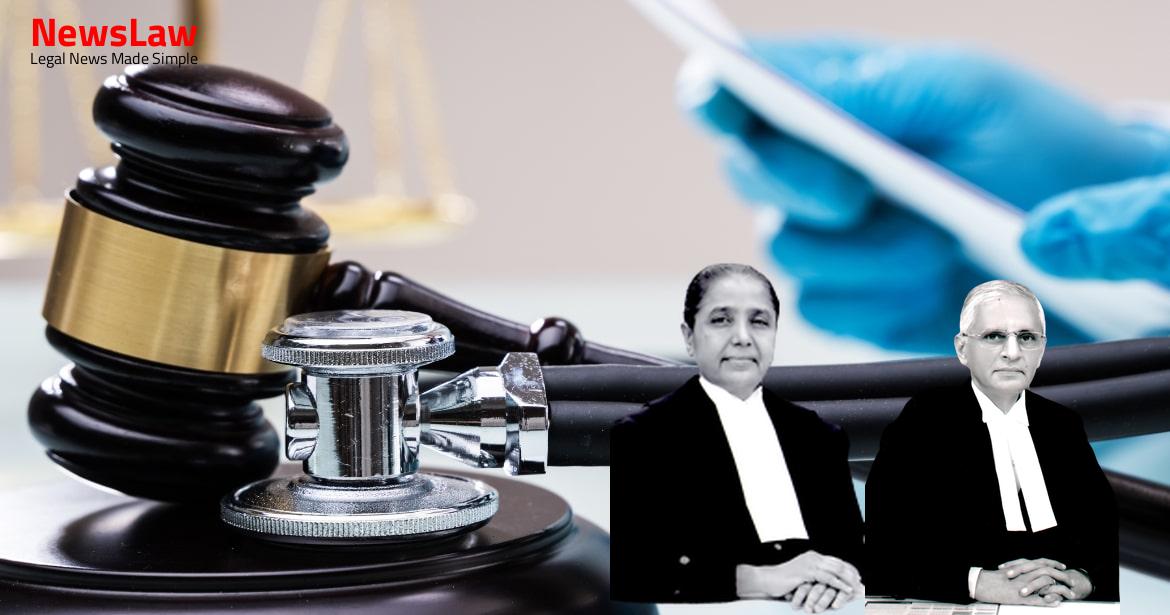Delve into the complex legal analysis of a premises subletting dispute as revealed in a recent court case. The court’s examination of evidence and precedent highlights the crucial role of documentation in establishing tenancy rights and determining landlord-tenant relationships. Stay tuned for a comprehensive insight into the legal intricacies of property disputes.
Facts
- The execution of the partnership deed dated 18.12.1976 was admitted but claimed as a sham document.
- The defendant did not dispute the execution of the partnership deed but claimed to have taken the premises on rent on the same day.
- Civil Writ Petition No.3115 of 1985 challenging the eviction order under the Public Premises Act was dismissed as infructuous.
- The Estate Officer ordered the eviction from Booth No.186 by order dated 09.09.1980.
- The defendant filed an appeal against the eviction order which was allowed, setting aside the decree of the First Appellate Court.
- The possession of Booth No.186 was never restored to the plaintiff.
- The plaintiff prayed for a mandatory injunction for the defendant to restore possession of Booth No.186.
- The partnership deed dated 18.12.1976 was termed a sham document by the defendant.
- Multiple suits and appeals were filed by both parties regarding the possession and usage of the premises.
- The trial court dismissed the suit, and subsequent appeals were made by the appellant.
- The First Appellate Court held that there was no material to conclude the defendant was a tenant.
- The trial court’s findings on the tenancy were based on surmises and conjectures.
- The High Court noted that the First Appellate Court drew adverse inferences due to the non-production of account books by the defendant.
- The High Court found that the plaintiff’s entire story was not credible.
- A Second Appeal was filed by the plaintiff against the judgment refusing to grant a mandatory injunction to the defendant.
- The First Appellate Court observed that there was no presumption of landlord and tenant.
- The respondent stated in court that he maintained account books but there was no record of payment to the appellant, and account books were not produced in court.
- The Second Appeal filed by the defendant was allowed by the High Court.
- The High Court framed two questions for consideration regarding the need to uncover any deceptive intentions in a case and the requirement for the appellate court to provide its own reasons for disagreeing with the trial court.
- The High Court held that the First Appellate Court wrongly relied on an order by the Chief Administrator and misread the defendant’s stand before the Chief Administrator.
Also Read: Analysis of Seniority Determination in Armed Forces Personnel Case
Issue
- Dispute over the subletting of premises
- Decision of the Chief Administrator, Chandigarh, deemed binding on parties
- No fragmentation of the building allowed
Also Read: Interstate Prisoner Transfer: Court’s Legal Analysis
Arguments
- The Chief Administrator concluded that the defendant was a servant of the hirer based on the evidence and arguments presented.
- The Chief Administrator held that there was no justification to deprive the hirer of the Booth in question.
- Despite being entitled to possession and use of the Booth as per the Chief Administrator’s order, the appellant had to file a suit for a mandatory injunction when the possession was not handed over.
- Sh. Kaushal argued that the appellant had no locus standi to file the appeal as they were just a servant of the hirer, Sh. Madan Mohan Singh.
- Evidence from the Additional District Judge, Chandigarh, supported the claim that the appellant was in possession of the premises not as a tenant or licensee.
Also Read: Judicial Analysis on Conversation Authenticity and Enquiry Need
Analysis
- The undersigned has full rights, power, and authority to enforce compliance with the terms and conditions of the lease.
- The undersigned can take necessary actions to recover costs incurred for enforcing compliance.
- A partnership deed was executed on 18.12.1976 between the plaintiff and the defendant for carrying out the business of cycle repairing in Booth No.186.
- The building leased out is to be used solely for the purpose of cattle, poultry feed, and nothing else.
- The defendant claimed tenancy from 18.12.1976 but failed to provide any rent receipts as evidence.
- The partnership deed was executed as a condition for renting the premises.
- The misuse of the premises was cited as the basis for eviction.
- The Chief Administrator’s order confirmed the defendant was a servant, not a tenant.
- The trial court found the defendant to be a tenant despite lack of proof.
- The Appellate Court upheld the decision that the defendant was not a tenant based on lack of evidence.
- The Court emphasized the importance of documented evidence in proving tenancy.
- The defendant’s claim of paying rent at Rs. 450 per month was refuted due to lack of evidence.
- The conduct of the parties before and after the creation of the relationship is relevant for determining their intention as per C.M. Beena vs P.N. Ramachandra Rao case (2004)
- Absence of evidence of taking premises on rent and admission of not maintaining rent payment records by DW-2 weakens the claim of landlord-tenant relationship
- The decision by clause 12 is final between the parties and cannot be contested by the defendant.
- The findings of the Chief Administrator on 04.03.1986 are crucial and cannot be disregarded in determining whether the premises were sublet or not.
- The High Court considered both the Regular Second Appeal filed by the defendant and the Regular Second Appeal filed by the appellant-plaintiff, which arose from Suit No.77 of 1986 seeking relief for injunction against using Booth No.186 for cycle repairs.
- The appellant’s Suit No.77 of 1986 was deemed deserving of being decreed and was rightly decreed by the First Appellate Court.
Decision
- The appeals have been allowed, and the judgment of the First Appellate Court dated 02.12.1996 has been restored.
- The judgment of the High Court in RSA No.2610 of 2002 is deemed of no avail.
- The Estate Officer of Chandigarh Administration is directed to ensure the appellant is immediately put in possession of Booth No.186.
- The appeals have been allowed with costs.
- The Regular Second Appeal No.2610 of 2002 filed by the plaintiff-appellant has been dismissed.
- The appellant is allowed to take appropriate proceedings to recover damages and mesne profit for the use of the premises by the defendant.
Case Title: MADAN MOHAN SINGH Vs. VED PRAKASH ARYA (2021 INSC 155)
Case Number: C.A. No.-000814-000815 / 2021



